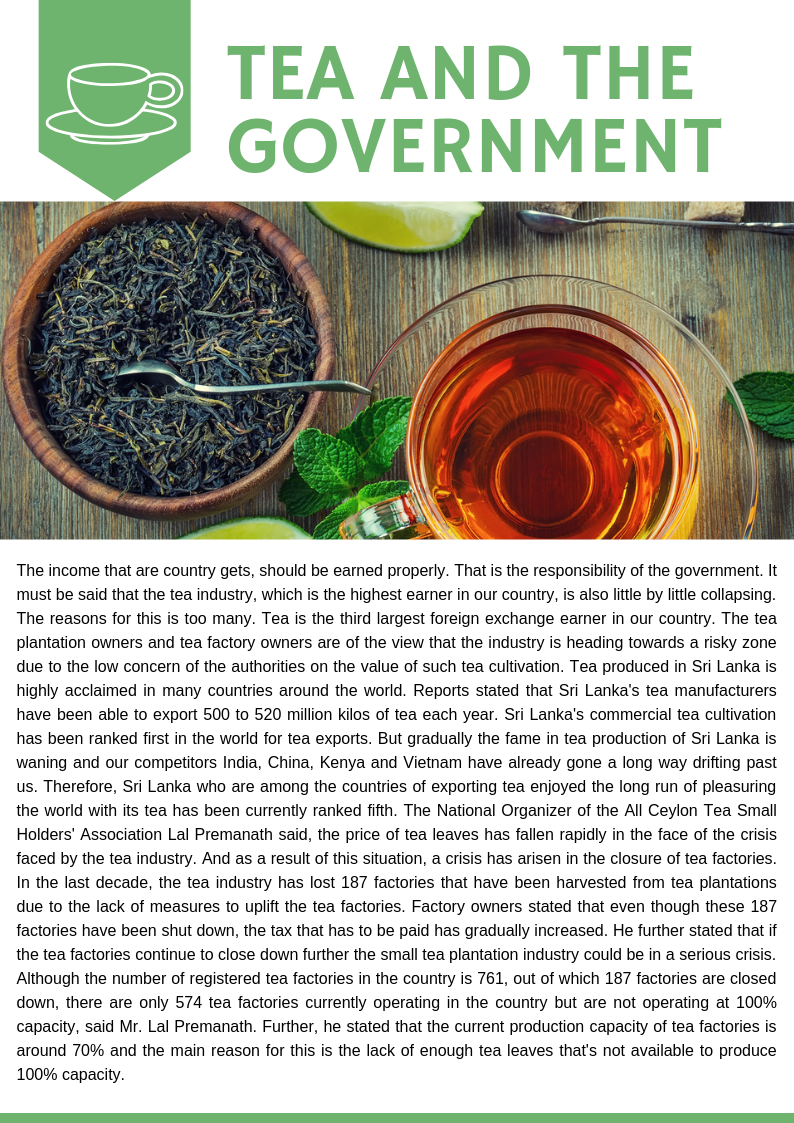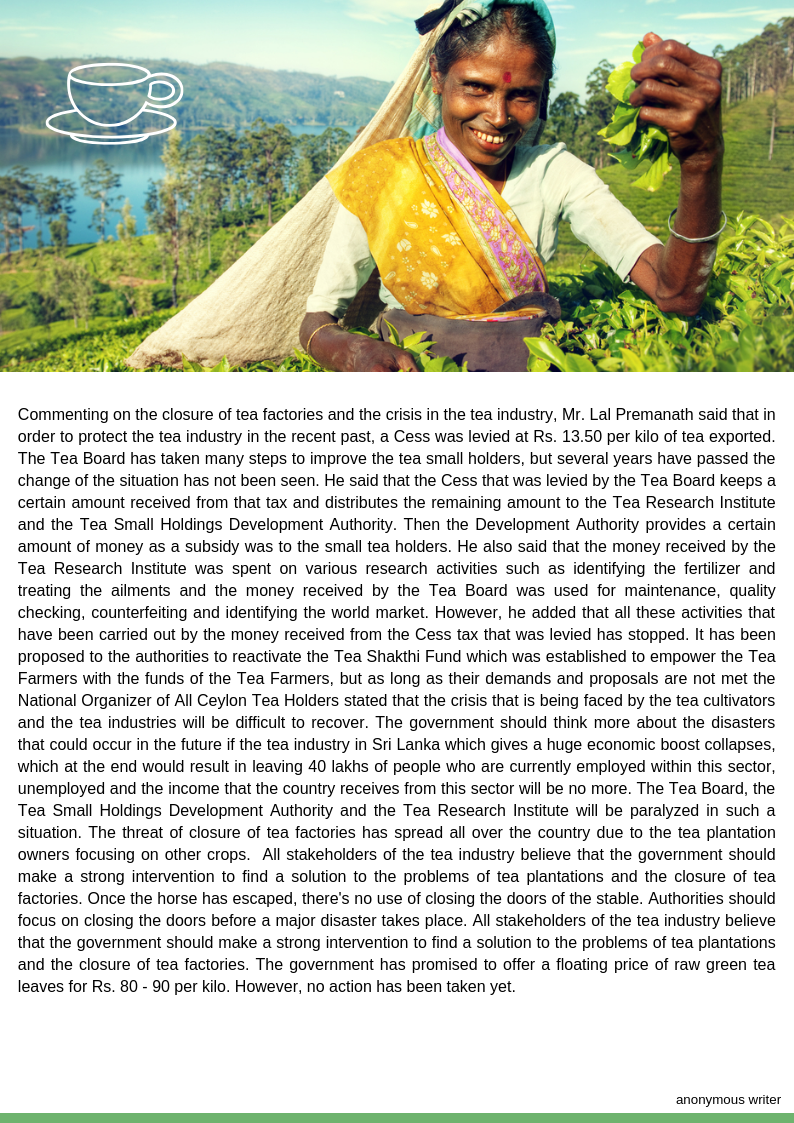Tea and the Government.
- The Reporter

- Jul 31, 2019
- 4 min read
The income that are country gets, s
hould be earned properly. That is the responsibility of the government. It must be said that the tea industry, which is the highest earner in our country, is also little by little collapsing. The reasons for this is too many.
Tea is the third largest foreign exchange earner in our country. The tea plantation owners and tea factory owners are of the view that the industry is heading towards a risky zone due to the low concern of the authorities on the value of such tea cultivation.
Tea produced in Sri Lanka is highly acclaimed in many countries around the world. Reports stated that Sri Lanka's tea manufacturers have been able to export 500 to 520 million kilos of tea each year. Sri Lanka's commercial tea cultivation has been ranked first in the world for tea exports. But gradually the fame in tea production of Sri Lanka is waning and our competitors India, China, Kenya and Vietnam have already gone a long way drifting past us. Therefore, Sri Lanka who are among the countries of exporting tea enjoyed the long run of pleasuring the world with its tea has been currently ranked fifth.
The National Organizer of the All Ceylon Tea Small Holders' Association Lal Premanath said, the price of tea leaves has fallen rapidly in the face of the crisis faced by the tea industry. And as a result of this situation, a crisis has arisen in the closure of tea factories.
In the last decade, the tea industry has lost 187 factories that have been harvested from tea plantations due to the lack of measures to uplift the tea factories. Factory owners stated that even though these 187 factories have been shut down, the tax that has to be paid has gradually increased. He further stated that if the tea factories continue to close down further the small tea plantation industry could be in a serious crisis.
Although the number of registered tea factories in the country is 761, out of which 187 factories are closed down, there are only 574 tea factories currently operating in the country but are not operating at 100% capacity, said Mr. Lal Premanath. Further, he stated that the current production capacity of tea factories is around 70% and the main reason for this is the lack of enough tea leaves that's not available to produce 100% capacity.
Commenting on the closure of tea factories and the crisis in the tea industry, Mr. Lal Premanath said that in order to protect the tea industry in the recent past, a Cess was levied at Rs. 13.50 per kilo of tea exported. The Tea Board has taken many steps to improve the tea small holders, but several years have passed the change of the situation has not been seen. He said that the Cess that was levied by the Tea Board keeps a certain amount received from that tax and distributes the remaining amount to the Tea Research Institute and the Tea Small Holdings Development Authority. Then the Development Authority provides a certain amount of money as a subsidy was to the small tea holders. He also said that the money received by the Tea Research Institute was spent on various research activities such as identifying the fertilizer and treating the ailments and the money received by the Tea Board was used for maintenance, quality checking, counterfeiting and identifying the world market. However, he added that all these activities that have been carried out by the money received from the Cess tax that was levied has stopped.
It has been proposed to the authorities to reactivate the Tea Shakthi Fund which was established to empower the Tea Farmers with the funds of the Tea Farmers, but as long as their demands and proposals are not met the National Organizer of All Ceylon Tea Holders stated that the crisis that is being faced by the tea cultivators and the tea industries will be difficult to recover.
The government should think more about the disasters that could occur in the future if the tea industry in Sri Lanka which gives a huge economic boost collapses, which at the end would result in leaving 40 lakhs of people who are currently employed within this sector, unemployed and the income that the country receives from this sector will be no more. The Tea Board, the Tea Small Holdings Development Authority and the Tea Research Institute will be paralyzed in such a situation.
The threat of closure of tea factories has spread all over the country due to the tea plantation owners focusing on other crops.
All stakeholders of the tea industry believe that the government should make a strong intervention to find a solution to the problems of tea plantations and the closure of tea factories. Once the horse has escaped, there's no use of closing the doors of the stable. Authorities should focus on closing the doors before a major disaster takes place.
All stakeholders of the tea industry believe that the government should make a strong intervention to find a solution to the problems of tea plantations and the closure of tea factories.
The government has promised to offer a floating price of raw green tea leaves for Rs. 80 - 90 per kilo. However, no action has been taken yet.








Comments